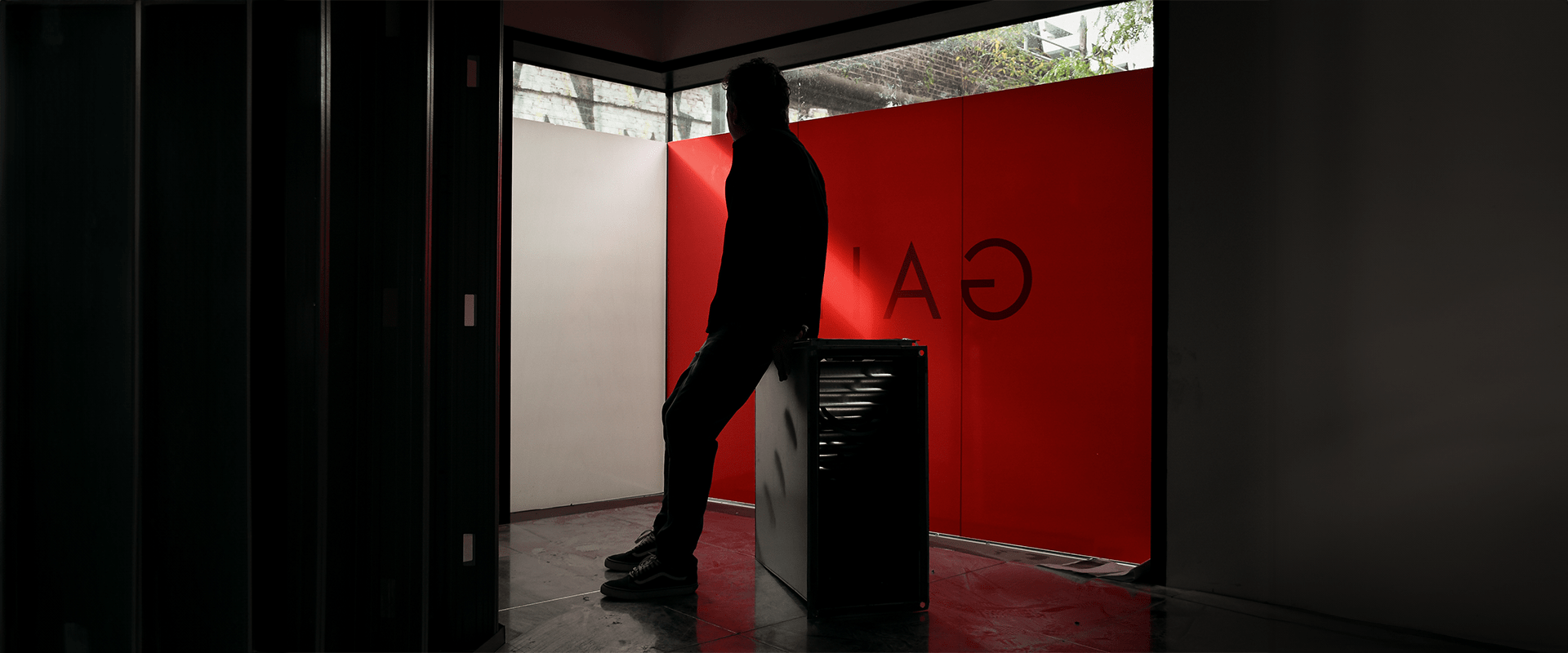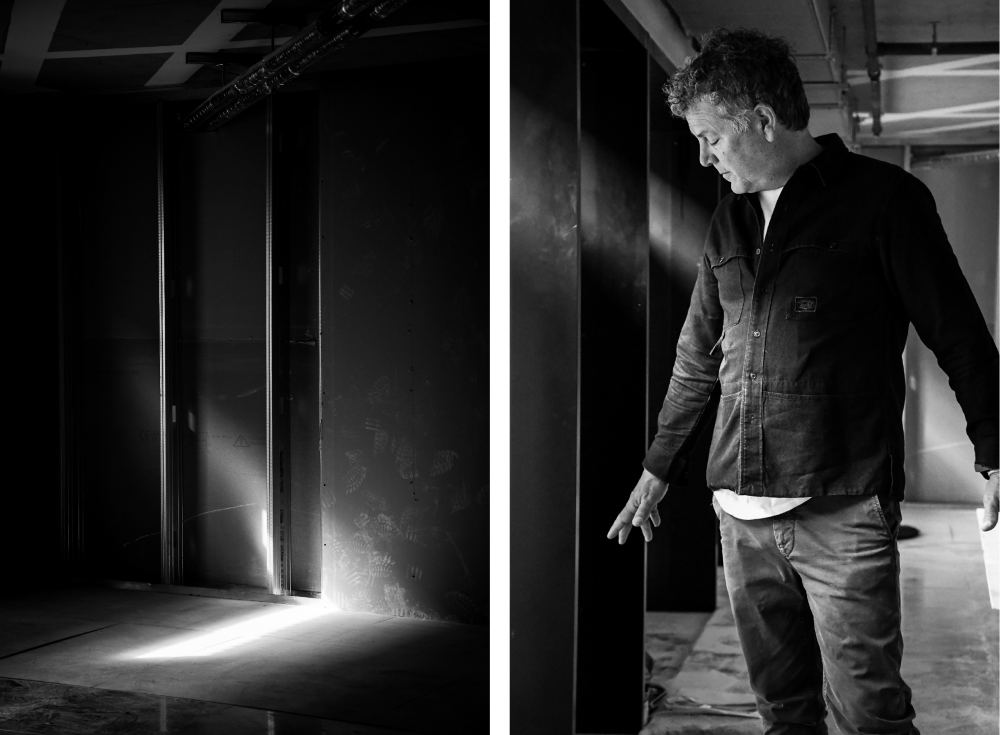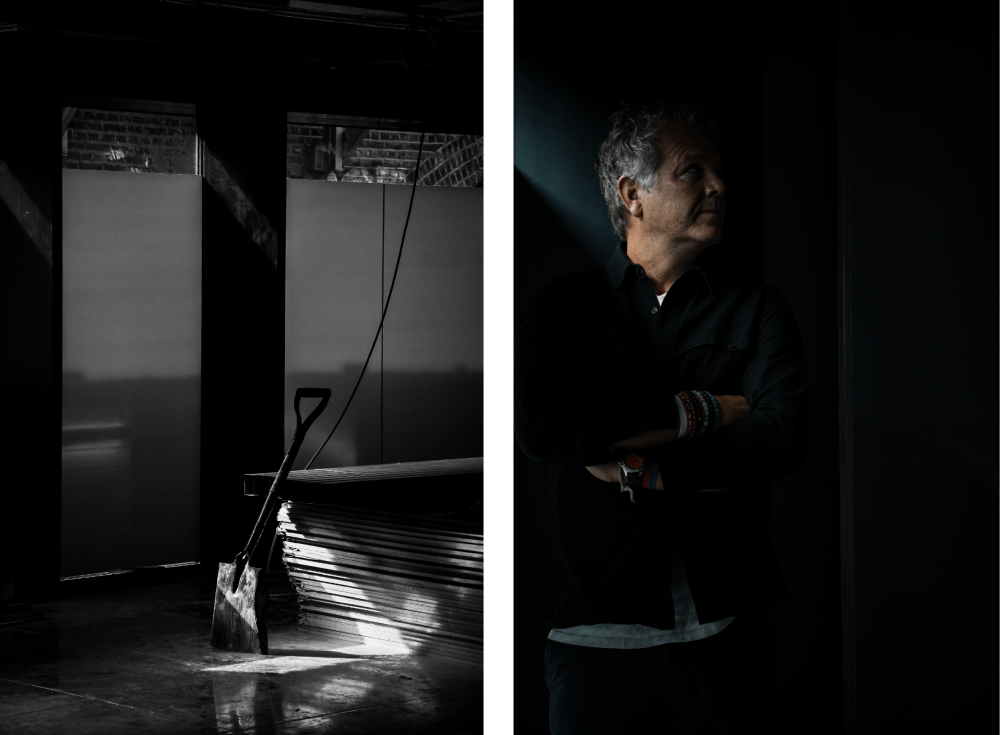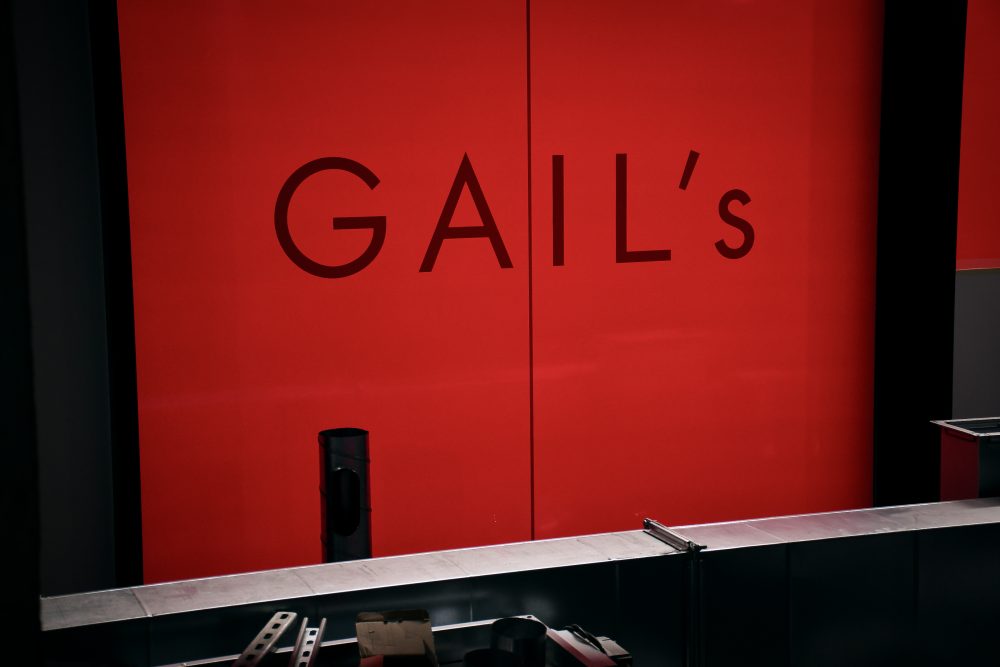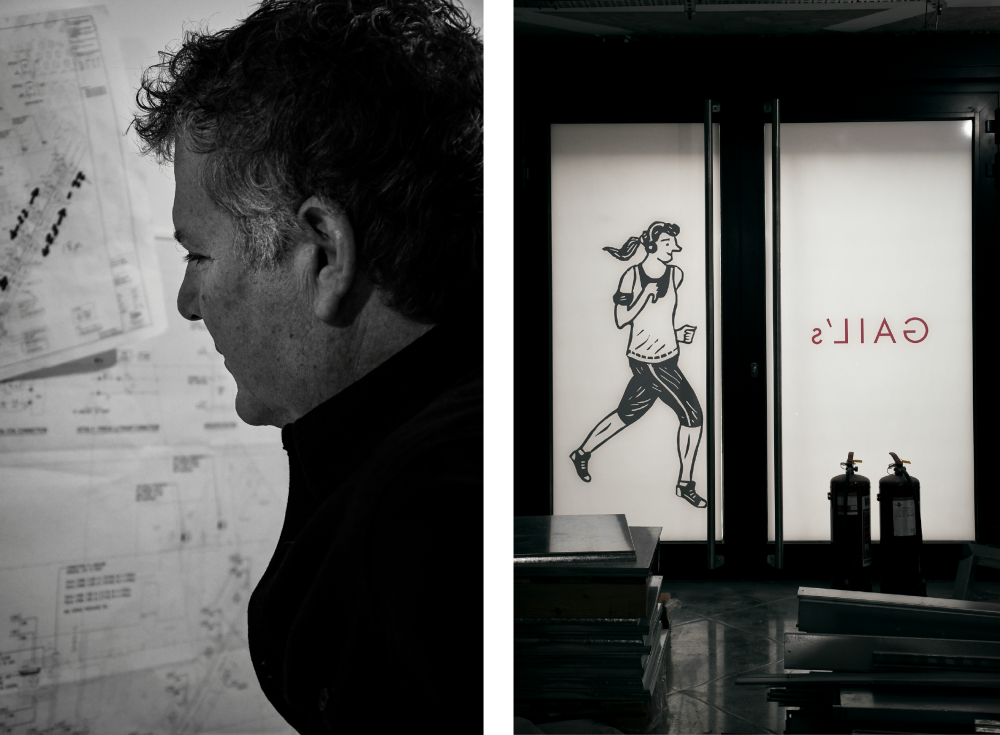Words Charlie Monaghan
Photography Hector Marshall
Thirty years since we started, our mission to make well-made bread more readily available has led us to a place we never imagined. But how did we get here? And what comes next? We met with our co-founder and CEO, Tom Molnar, at our now-open new base in Camden to reflect on the journey so far, and hear how the site will facilitate the big things we want to do now.
Back in the 1990s, when we first set up as a bakery supplying the restaurant industry, we had a few simple things we wanted to achieve: to put the craft back into baking, to promote the value of sourdough bread and to encourage people to see a well-made loaf as something of value. As we’ve grown, so has our mission expanded, from first wanting to reinvent the neighbourhood bakery for the 21st century to our more recent focus on reusing or donating as much surplus food as we can.
It’s been a busy three decades – so much so that with our heads down and focus firmly set on the tasks at hand, we’ve had little time to think about much else. That’s why, when it comes to workspace, the non-bakers among us have had to improvise, carving out desk space in our neighbourhood bakeries among sacks of flour and on top of ovens – something our co-founder and CEO, Tom Molnar, did for two years; “hot as hell in the summer,” he recalls, laughing.
On a recent autumn’s day, though, Molnar was overseeing progress at the now-opened GAIL’s Studios in Camden, a space that brings together our people to create moments for collaboration, idea sharing and conversation like never before. It’s just as well, because, as Molnar tells us, those will be the driving forces behind what we want to do next. Here, to mark the milestone, we sat down with him to talk about the past, present and future of our ongoing mission to make the world better through the food we make.
Tom, how did you get involved in GAIL’s?
“We were started in the early 1990s by Gail Mejia, who was part of a small group of food pioneers in London. People like her, Sally Clarke, Antoine Mossuman and others got a movement going, which turned this city from one of the worst places for food in the world into one of the best.
“When I met Gail she had three garages over London set up as bakeries, supplying some of the best restaurants in the city. There were these beautiful bakers making beautiful bread, but the business side of things was chaos. I knew all we had to do at that point was to ensure it stayed alive.”
How did you do that?
“What we have always done: put the bakers first. It would never make sense to run a bakery and not have the bakers at the heart of it, so everything we do originates from them. I love their approach to life; they are super authentic, disciplined, focused people who create something for others to enjoy and feed themselves with every day – it’s just a human, generous act. The bakers are kings, and we will go the wrong way if we ever forget that.
“It was the bakers who flagged that what they were making wasn’t available outside top restaurants and that they wanted to be able to go home to their neighbourhood and buy good bread, which was hard to do back then. We took all our money and organised the operation into one building so the bakers were all working together. The craft world is typically beautiful people doing beautiful things, but it’s often scatty, unorganised and underinvested. We said, ‘Let’s see if we can do it differently and grow what we’re doing to bring it to more people.’
“Because we originally only supplied professionals, from day one our quality bar was set by top chefs – I’ve delivered brioche to Pétrus in the middle of the day at least three or four times! As we expanded into local bakeries, we wanted to challenge this myth that you must compromise quality to grow a food business.
“As we opened more local bakeries, it required a lot of thought to go from 200 loaves a day to 1,000 to the 40,000 we make today while retaining the things we care about: the natural fermentation of flour, things being done by hand when it matters, and using the right ingredients. So, not only did scaling up not take anything away, but it actually challenged us to think more deeply about baking and, as a result, the bread got better.
“It wasn’t about diluting the craft to make it more accessible, but improving the craft while making it more available. We are proud of our contribution to the resurgence of baking and sourdough in the UK – we joined a movement and now good bread is easier to find, and not just ours, which is a good thing.”
Why do you think the natural order of food seems to dictate that size comes at the cost of quality?
“As a society, from the second half of the 20th century, we became focused on feeding populations to make sure people didn’t starve, and that came from the heart. But a huge volume of food came at the cost of the natural world, of food’s nutritional value and its connection to place, and we were left with food as a commodity.
“The challenge has changed a little bit: yes, we can produce a lot of food, but that has come with environmental damage and waste. The good news is that there are some emerging answers for how to fix the damage, ones that will help us look after the soil and put the nutritional value back into food. We are joining a growing movement of change that can reverse the damage and lead to a more regenerative system for nature and communities.
“To get there we need to place food people at the heart of things, rather than technicians. When I got involved I saw that a food business run by bakers resulted in something better – not just better tasting, but better for the world. So, they can’t be stuck in a little garage; their impact has to be bigger than that.”
So, 30 years on, what’s the mission for GAIL’s now?
“We are always staying curious, challenging ourselves, pushing forward on our journey to make adjustments to the food system. With the size we are now comes a massive sense of responsibility to know even more about what good our ingredients do, so that our growth is connected to an ecosystem that is making a positive impact.
“The coffee market has set an amazing excellent example: there have been people building supply chains in places like Rwanda, Costa Rica, Panama and Brazil for decades, so now a good bean from a good terroir finds itself in the best cafés all over the world. Coffee is valued, so there is more money in the system, meaning everyone in the supply chain is getting paid more, including the farmer. Wine is a good example too, how they’ve taken a grape and taught people about its value.
“The next thing we can do is to reach into the food system and see what positive impact we can have. That starts by looking around us and encouraging some of the good things that are happening, to get behind them and add our heft. If we get to know the millers of our flour and we come together around a shared idea about how food should be made, we can trust them to be sourcing their wheat from farmers doing good things with their soil. Then it becomes an interconnected system of growers, makers, farmers and people like us trying to improve things.
“So, if we see someone doing something that we believe is right and healthy from a societal and product standpoint, but also tastes great, we want to support them. Take the team at our apple juice partner, Wildpress, who want to promote and advocate for the diversity of apple varieties in this country. They are making a great product, but they need some help and that’s exactly what we can offer. The bigger we are the more we can support and grow other businesses doing healthy things, and that’s how you begin to modify a food system.”
What does the next 5, 10 years look like?
“The mission is to do better as we do more, to learn, to set an example of what good means and looks like. There’s still a lot for us to learn in the process of improving the food system, which centres on the bakers and food but it doesn’t stop there. It includes everyone from the people building our sites to our ops teams, and it means communicating what we’re doing better. You can make a great loaf of bread but it can get lost if you don’t get everything else right, so it’s all about giving the baking the best chance to make a difference, to make a positive impact.
“Much of that is about nurturing our community and having conversations. I would like our customers to know that as we get bigger, it’s not just us growing, but a whole network of people like us who are farming in the right way or making food that’s alive and healthy.”
What role does this new building play in that?
“When we were smaller we didn’t need a space like this but now we’re bigger, the mission is bigger, and we need more space for conversations and creativity to happen. The building is really about three things: meeting, ideating and educating. We have created a space for our people to be able to work together and converse. There are studios to develop creative ideas, baking and coffee. For education, there is a coffee academy and training rooms. And there is a bakery so our customers will be close to what’s going on, which is important to us.
“Those three things – meeting, ideating and educating – will facilitate our efforts to alter the food system in a positive way by creating space for our partners and suppliers to come in and spread their messages too; for our in-house teams to workshop ideas; and for us to set an example for what a healthy food business looks like in the 21st century.
“Our mission when we were smaller was just about making good baking as widely available as possible but the mission has grown as we have. We need more space to share ideas, to feed and nurture our culture. No one thought GAIL’s would ever need meeting rooms but here we are! We’ve grown up.”
Our new Studios and bakery are open from Monday 6 November. Come and say hello! 1 Dockray Place, Hawley Wharf, London NW1 8QH
